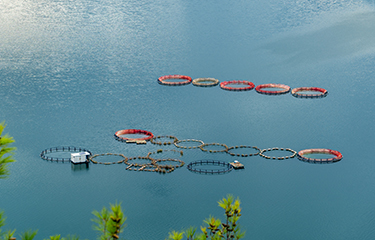Turkish trout producers visit Japan amid rapidly increasing exports

A delegation of representatives from 11 Turkish trout producers recently visited Tokyo and Osaka for business matching meetings with importers. The trip comes as Turkey is experiencing a boom in exports, and as Japan seeks to diversify its sourcing beyond Norway and Chile.
The meetings, held in Tokyo on 31 January and in Osaka on 2 February, gave the Turkish exporters a chance to promote their farmed rainbow trout, which is marketed as “Turkish salmon,” an appellation that is readily accepted in Japan, as the Japanese usually refer to trout farmed in salt water as “salmon-trout.” Substitution of trout for salmon is not considered as mislabeling, as trout is considered a kind of salmon in Japan.
Global Media Corporation, based in Tokyo, acted as secretariat for the events and recruited Japanese buyers and importers to participate in the business meetings. In addition to meeting with importers, the delegation met with staff of the Japan Fisheries Association and the Japan Fisheries Agency on the last day of the event in Tokyo.
The participating companies were members of Turkey's Eastern Black Sea Exporters Association, which organized the trip. Established in 1998, the Eastern Black Sea Exporters Association (DKIB) represents over 2,000 companies operating in the provinces of Artvin, Gümüşhane, Rize, and Trabzon. This area is about a 10-hour drive from the epicenter of the earthquake that recently hit Turkey's southeast, near the Mediterranean Sea.
Exports of trout and salmon from Turkey to Japan declined from around 3.4 metric tons (MT) in 2019 to 1.5 MT in 2020 due to Covid-19 before rebounding to 6.2 MT in 2021, and then jumping to 31.1 MT in 2022.
Turkey’s global salmon-trout exports rose from 145.8 MT in 2019 to 176.8 MT in 2020, then ballooned to 273.6 MT in 2021, and to 445.6 MT in 2022.
Zafer Ertem, the project manager who organized the delegation for DKIB, said the Turkish delegation met with 35 Japanese companies during the matchmaking events and received very clear requests from Japanese companies for ready-to-eat products, and trim-E fillets.
“Because these companies were mostly operating internationally, the interest was above and beyond the expectations,” he said. “Japanese companies try to decrease their dependency level on products and services supplied by Norway, Chile, and others … We are expecting heavy demand from Japanese companies in the upcoming years. Japanese companies seem ready to sign contracts even for 2023,”
The delegation represented a cross-section of the industry in Turkey, including small-scale producers, farm operators, and large processors and exporters.
At the smaller end, hatchery and fish-farming operations are integrated into tourist facilities. For example, the parent company of Inan Kardesurel Trout Aquaculture, based in Trabzon, operates a hotel, but since 1974 it has also operated a trout hatchery. Some of the production is raised in a land-based system, while some of the fish are transferred to nets in the sea and farmed by other companies.
According to its website, the hatchery and farm are tourist attractions for the hotel, and the trout are served in the hotel’s restaurants. Though smaller, another participant, Sezginrel, has a similar business model, operating the Sezgin Hotel, a restaurant, and a fish farm in the village of Uzungol.
At the large end of the spectrum of countries on the Japan visit were ...





Share